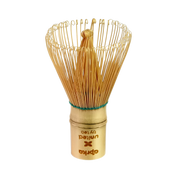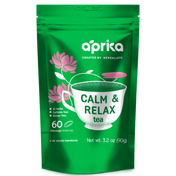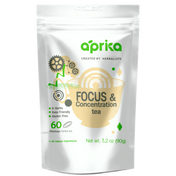Sustainable buying is no longer just a passing trend; it has become a meaningful choice for people who care about what they consume and the impact it leaves behind. When it comes to matcha, this choice is especially important. Authentic matcha reflects centuries of tradition, careful farming practices, and respect for the land it grows on. But in today's market, not all matcha is created equal. Some brands sell products that may not even come from Japan, or that are produced in ways that don't honor the environment or the farmers who cultivate it. If you've ever wondered how to spot authentic matcha powder that supports sustainable farming, you're not alone. By learning how to recognize sustainable matcha, you can enjoy a cup that is not only delicious and vibrant but also respectful to both people and the planet. Let's begin!
Why You Should Care About Authentic Matcha
Identifying authentic matcha powder matters because it ensures you're getting the authentic taste, benefits, and tradition behind this remarkable tea. Genuine Japanese matcha is grown with care, resulting in its green color vibrancy, smooth matcha flavor, and rich nutrients. Choosing authentic matcha powder also supports sustainable farming practices and the farmers who have carried on this craft for generations, so your morning cup of green tea becomes both an enjoyable and responsible choice.
Sustainable Matcha: What to Look For Before You Buy
When it comes to choosing matcha, sustainability matters just as much as flavor and quality. Not all matcha is grown with care for the environment or the farmers who cultivate it, so knowing how to spot truly sustainable matcha powder can help you make a responsible choice. From certifications and sourcing to packaging and production practices, several signs indicate that a matcha brand is committed to eco-friendly and ethical practices. Let's look at a few key certifications you should be looking out for:
JAS Organic Certification
The Japanese Agricultural Standard (JAS) Organic certification is a hallmark of quality and sustainability for matcha grown in Japan. This certification ensures that the tea is cultivated without synthetic fertilizers or pesticides and follows environmentally conscious farming practices. When you see the JAS seal on a matcha product, you can trust that it comes from farms that prioritize soil health, biodiversity, and traditional cultivation methods, resulting in a powder that is both vibrant in color and rich in flavor.
USDA Organic Certification
The USDA Organic label is another trusted indicator of sustainable matcha, especially for products imported or sold internationally. It guarantees that the tea leaves are grown without harmful chemicals and meet strict standards for environmental stewardship. Choosing USDA-certified matcha powder not only supports eco-friendly farming practices but also ensures you're getting a pure, high-quality product that maintains the natural nutrients and umami flavor that authentic matcha is known for.
Choosing Matcha Responsibly: Sourcing, Packaging, and Quality Tips
While certifications like JAS and USDA Organic are a reliable starting point, there are additional ways to ensure the matcha you choose is truly sustainable. Paying attention to sourcing, ingredients, packaging, and overall quality can help you make a responsible choice that supports the environment and honors traditional cultivation practices.
Spot Japanese Origins
Authentic, sustainable matcha comes from Japan, where traditional farming methods are carefully maintained to protect the environment and produce vibrant, flavorful matcha green tea. Choosing matcha grown in Japan ensures that the leaves are cultivated with attention to soil health, minimal chemical use, and careful harvesting practices.
Check Ingredients
Sustainable matcha powder should be pure, containing 100% tea leaves with no fillers, artificial colors, or flavorings. Premium quality matcha reflects careful cultivation and processing, and ensures that each serving delivers its full nutritional and matcha flavor potential. Avoid products that mix in other powders or additives, as these often come from production methods that compromise sustainability.
Consider Packaging
Packaging is another important factor in sustainable matcha. Look for brands that use recyclable tins, compostable bags, or minimal plastic. Thoughtful packaging reduces environmental impact and aligns with the overall philosophy of sustainability, from farm to cup.
Pure, Sustainable Matcha for a Conscious Tea Time
Making matcha green tea powder is a careful, time-honored process that takes patience and attention at every step. From shade grown cultivation to grinding, every part of the journey affects the flavor, color, and nutrients of the final powder. Certifications like USDA & JAS Organic give you confidence that what's in your matcha bowl is pure, unadulterated matcha that's good for your health. By paying attention to sourcing, ingredients, and packaging, you can enjoy your tea knowing that each moment of your ritual comes without compromising the environment. It's a small choice that makes your daily routine not just delicious, but responsible.








